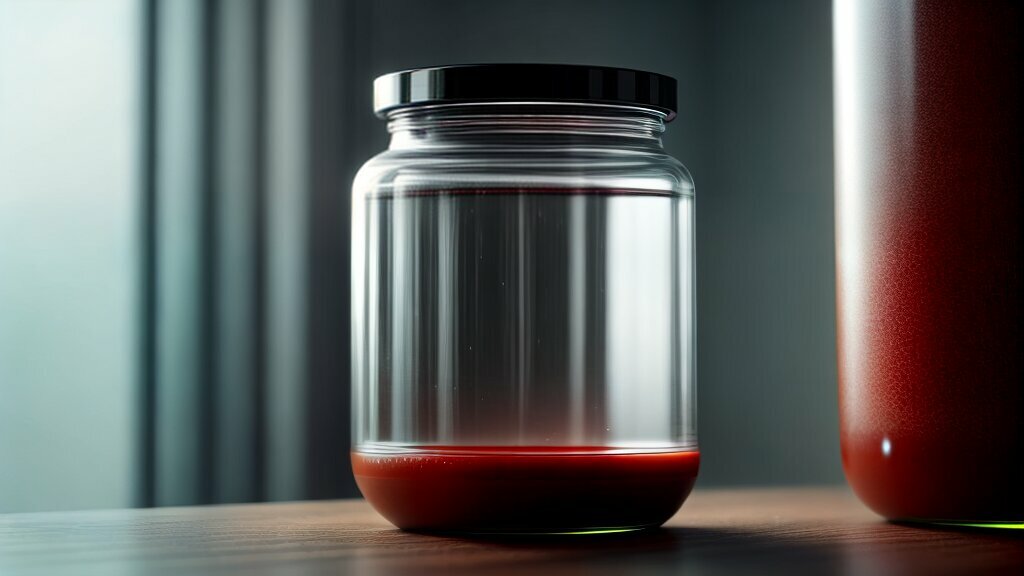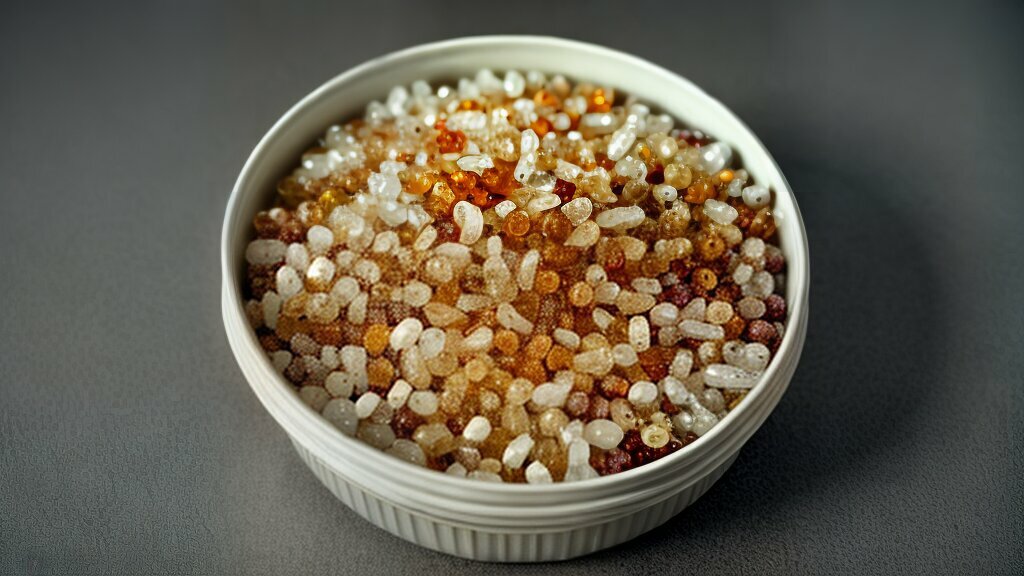If you’re a fan of probiotics, you know how beneficial they can be for gut health and overall wellness. But have you ever wondered how long these friendly bacteria last? Knowing the shelf life of probiotics is crucial for getting the most out of them and avoiding any potential health risks.
In this guide, we’ll explore the factors that can impact the longevity of probiotics, how to store them properly, and tips for maximizing their benefits. We’ll also answer common questions about probiotic expiration dates and debunk some myths about probiotic shelf life.
Key Takeaways:
- Probiotics are live microorganisms that can gradually lose their potency over time.
- The shelf life of probiotics can be affected by factors such as formulation, storage conditions, and expiration dates.
- Proper storage and handling can help extend the lifespan of probiotics.
Understanding Probiotic Shelf Life
Probiotics are live microorganisms that can gradually lose their potency over time, gradually becoming ineffective. To extend their lifespan, it’s essential to handle them with care and store them properly. Some strains may have a shorter shelf life than others, so it’s important to check the expiration date before purchasing to ensure maximum potency.
Proper storage is key to preserving probiotic effectiveness. Heat, light, and moisture can all impact the longevity of probiotics, so it’s important to store them in a cool, dry place, away from direct sunlight. One way to extend the shelf life of probiotics is to store them in the refrigerator, especially if the packaging instructs you to do so.
Frozen probiotics are not recommended, as freezing can damage the delicate microorganisms. It’s also important to check the packaging for any special storage requirements, such as keeping the probiotics in the original packaging or storing them in a dark place.

By taking proper precautions and following the storage instructions provided with your probiotic supplement, you can help maximize their freshness and effectiveness. Remember, the shelf life of probiotics can vary depending on their formulation, additional ingredients, and storage conditions. By understanding these factors and taking the necessary steps to preserve their quality, you can ensure you’re getting the most out of your probiotic supplement.
Factors Affecting Probiotic Shelf Life
Probiotic shelf life can vary depending on several factors. The type of probiotic strain, quality of the formulation, packaging, and storage conditions can all impact the freshness and effectiveness of probiotics.
For example, some probiotic strains may be more fragile and have a shorter shelf life than others. The quality of the formulation can also play a role, as products with higher potency may have a shorter shelf life than those with lower potency.
The packaging can also affect the shelf life of probiotics. Exposure to moisture, heat, and light can all reduce the potency of probiotics. This is why it is important to choose probiotic products with airtight packaging that can protect the live cultures from external environmental factors.
Finally, storage conditions are crucial for maximizing the freshness and efficacy of probiotics. Storing probiotics in a cool, dry place away from sunlight and moisture can help extend their shelf life. Refrigerating probiotics can also help preserve their potency, particularly for liquid or capsule forms.

By understanding the factors that can impact the shelf life of probiotics, you can take steps to maximize their freshness and effectiveness.
Decoding Probiotic Expiration Dates
Have you ever wondered how probiotic manufacturers determine expiration dates? Stability testing is primarily used to determine the shelf life of probiotics. This testing measures the decline in the number of live microorganisms in the product over time. Based on this data, manufacturers assign an expiration date that reflects the predicted decline in potency over time.
It’s important to understand that the expiration date indicates the time until which the product is guaranteed to contain the stated number of live microorganisms. However, this doesn’t mean that probiotics can’t be effective beyond their expiration date or that they will suddenly become harmful once they expire.
Consuming expired probiotics won’t harm you, but it’s unlikely that you’ll experience the same benefits as you would with a fresh product. Generally, it’s recommended to use probiotics before their expiration dates to get the most out of them.

It’s worth noting that some probiotics may have longer shelf lives than others. For example, freeze-dried probiotic capsules tend to have longer shelf lives than liquid probiotics. Regardless of the type of probiotic, proper storage and handling can help extend their shelf life and maintain their potency.
Storing Probiotics for Longevity
If you want your probiotics to last as long as possible, proper storage is key. Here are some tips to help you store your probiotics effectively:
| Form of Probiotics | Storage Tips |
|---|---|
| Capsules | Store in a cool, dry place, away from moisture and heat. Avoid exposing them to direct sunlight. |
| Powders | Store in a cool, dry place, away from moisture and heat. Seal the package tightly after each use. |
| Liquid Probiotics | Store in the refrigerator to help preserve the live bacteria. Keep the bottle tightly sealed when not in use. |
In general, it’s best to keep probiotics away from moisture, heat, and direct light. Storing them in the refrigerator can also help to extend their lifespan, particularly for liquid probiotics that contain live bacteria. However, be sure to check the product label first to ensure that refrigeration is recommended or required.
Remember, proper storage is essential for maintaining the freshness and effectiveness of your probiotics. By taking the time to store them correctly, you can help to ensure that you get the maximum benefits from your probiotic supplements.

Maximizing Probiotic Benefits
To extend the effectiveness of probiotics, it’s important to maintain a consistent daily intake and follow the recommended dosage instructions provided by the manufacturer or healthcare professionals. For maximum benefit, consume probiotics with a healthy lifestyle and balanced diet.
Probiotics work by populating your gut with beneficial microorganisms, so consistent intake is necessary to maintain their benefits. Take them at the same time each day to help establish a routine and improve adherence.
Following the recommended dosage instructions is essential, as different strains of probiotics have varying levels of potency. Taking too little may not be effective, while taking too much can lead to side effects.
It’s also important to note that probiotics are not a miracle cure and should not be relied upon as a sole means of maintaining gut health. Incorporating probiotic-rich foods and focusing on gut health through a balanced lifestyle can help extend the benefits of probiotics.

Signs of Probiotic Spoilage
It is essential to be aware of the signs of probiotic spoilage to avoid consuming ineffective or potentially harmful supplements. The most apparent sign of probiotic spoilage is an expiration date that has passed, but other indicators may help you determine the freshness of your probiotics.
Changes in color, texture, or odor may be a sign that your probiotics are no longer viable. Discoloration or changes in texture can indicate contamination or bacterial growth, while an unpleasant odor may suggest that the probiotic strains have died off. Always check for visible signs of mold, as consuming contaminated or spoiled probiotics can lead to infections and other health issues.

If you notice any of these signs, it’s best to discard your probiotics and purchase a new batch. Proper storage and usage can significantly impact probiotic shelf life, so be sure to follow the recommended dosage and storage instructions provided by the manufacturer.
Different Forms of Probiotics and Their Shelf Life
Probiotics are available in various forms, including capsules, tablets, powders, and liquid probiotics. Each form has a different shelf life, depending on the type of probiotic strain and the quality of the formulation.
| Probiotic Form | Typical Shelf Life | Storage Recommendations |
|---|---|---|
| Capsules and Tablets | 1-2 years | Store in a cool, dry place away from direct sunlight and moisture. |
| Powders | 6-12 months | Keep in a cool, dry place with the lid tightly closed. Avoid exposure to moisture and humidity. |
| Liquid Probiotics | 6-12 months | Store in the refrigerator and use before the expiration date. Do not freeze. |
When purchasing probiotics, it’s essential to check the expiration date and choose products with the longest shelf life possible. Opt for reputable brands that use high-quality probiotic strains and test for stability to ensure the potency of their products.
By storing your probiotics correctly and choosing products with longer shelf life, you can extend the effectiveness of your probiotics and gain the maximum possible benefits for your gut health.

Tips for Choosing Probiotic Products with Longer Shelf Life
Choosing high-quality probiotics with longer shelf life is crucial for maximizing their effectiveness and preserving their freshness. Keep these tips in mind when selecting probiotic products:
- Check the expiration date: Always check the expiration date before purchasing probiotics. Look for products with longer expiration periods to ensure they last longer.
- Consider the quality of the brand: Choose probiotic products from reputable and trustworthy brands to ensure quality and safety.
- Consult with healthcare professionals: Talk to your doctor or a registered dietitian to get recommendations for specific probiotic products that suit your health needs.
- Read customer reviews: Look for feedback from other customers who have used the product to get an idea of its effectiveness and shelf life.
- Store them properly: Opt for probiotic products that come in protective packaging and store them in a cool, dry place to maximize their shelf life.

Proper Usage and Dosage of Probiotics
To maximize the effectiveness of probiotics, it is important to follow the recommended usage and dosage instructions provided by the manufacturer or healthcare professionals. Consistent daily intake is key to maintaining the benefits of probiotics.
It is also important to note that different probiotic strains may require specific dosage recommendations, so it is crucial to consult the product label or healthcare professionals for guidance. Taking too much or too little of a probiotic may affect its effectiveness.
When taking probiotics, it is recommended to take them on an empty stomach, typically 30 minutes before a meal or two hours after a meal. This allows the probiotics to reach your intestines without interference from stomach acid or digestive enzymes.
For powdered or liquid probiotics, it is important to measure the correct dosage using a spoon or dropper provided by the manufacturer. Avoid mixing it with hot beverages or food, as high temperatures can damage the probiotics.
It is important to note that probiotics are not a substitute for a healthy lifestyle or a balanced diet. They should be used in conjunction with these practices for optimal results.

Tip: To remember to take your probiotics consistently, try incorporating it into your daily routine, such as taking it before brushing your teeth in the morning.
Frequently Asked Questions (FAQs) about Probiotic Shelf Life
If you’re curious about the shelf life of probiotics, you’re not alone. Here are answers to some of the most frequently asked questions about probiotic expiration dates:
- How long do probiotics typically last?
The shelf life of probiotics varies depending on the formulation, but most probiotics have a shelf life of 1-2 years. Some probiotics may have a shorter or longer shelf life, so be sure to check the expiration date on the label.
- Can probiotics still be effective after the expiration date?
The potency of probiotics gradually decreases over time, so it’s best to use them before the expiration date for maximum effectiveness. Using probiotics after the expiration date may result in a reduced benefit or no benefit at all.
- Can probiotics be frozen to extend their shelf life?
Freezing probiotics may prolong their shelf life, but it’s important to check the label to see if the product is freezer-safe. Additionally, freezing may affect the potency and effectiveness of probiotics, so it’s best to follow the storage instructions provided by the manufacturer.
By understanding the shelf life of probiotics, you can make informed decisions about how to store and use them for optimal health benefits.

Probiotic Shelf Life: Myth vs. Fact
As you learn more about probiotic shelf life, you may come across common myths and misconceptions that can be misleading. It’s important to separate fact from fiction to make informed decisions about storing, using, and discarding probiotics.
Myth: Probiotics last indefinitely.
Fact: While probiotics can last a long time, they do eventually expire and lose their potency. It’s essential to check expiration dates and use probiotics before they expire.
Myth: You can extend the shelf life of probiotics with home remedies.
Fact: There is no evidence that home remedies such as freezing or heating can extend the shelf life of probiotics. In fact, these methods can potentially harm the beneficial bacteria in probiotics.
Myth: Probiotics never expire.
Fact: Like any other supplement or medication, probiotics have an expiration date indicating when they start to lose their effectiveness. Using expired probiotics can be risky and may cause adverse health effects.
To ensure the freshness and efficacy of your probiotics, follow recommended storage and usage instructions, check for expiration dates, and discard any expired or spoiled probiotics. With proper care, you can maximize the benefits of probiotics and support your gut health.

Tips for Properly Discarding Expired Probiotics
Probiotics are not meant to last forever, and consuming expired ones can lead to adverse health effects. It is essential to dispose of expired probiotics properly.
Here are some tips for safely discarding expired probiotics:
- Check the expiration date before consuming any probiotics.
- Do not consume probiotics that have expired.
- Dispose of expired probiotics in the trash or according to local regulations.
- Avoid flushing probiotics down the toilet or sink.
- Keep probiotics out of reach of children and pets.
Proper disposal of expired probiotics is necessary to prevent ingestion by children, pets, or other individuals who may be allergic or sensitive to certain probiotic strains.
If you are unsure about how to dispose of expired probiotics, contact your healthcare provider or local waste management department for guidance.

Probiotic Alternatives with Longer Shelf Life
If you’re concerned about the shelf life of probiotics and prefer alternatives with a longer lifespan, consider incorporating fermented foods into your diet. Fermented foods have been used for centuries to improve gut health and provide beneficial bacteria.
Some examples of fermented foods include:
| Fermented Food | Bacteria Strains |
|---|---|
| Sauerkraut | Lactobacillus plantarum |
| Kimchi | Lactobacillus kimchii |
| Kefir | Lactobacillus kefiranofaciens, Lactobacillus kefir, Bifidobacterium bifidum |
Unlike probiotics, fermented foods have a longer shelf life and are easier to incorporate into your diet. You can add sauerkraut to sandwiches or salads, use kimchi as a condiment or ingredient in dishes, or enjoy kefir as a drink or added to smoothies.
These alternatives offer similar benefits to probiotics, such as improving digestion, enhancing immune function, and promoting overall gut health. Try incorporating them into your diet for a delicious and nutritious way to support your gut microbiome.

Conclusion
Now that you have a better understanding of probiotic shelf life, you can take steps to ensure that you are getting the most out of your probiotic products. Remember to always check the expiration dates and choose high-quality probiotic products from reputable brands. Proper storage and usage are key to maximizing the benefits of probiotics, so be sure to follow the recommended dosage instructions and store your probiotics in a cool, dry place away from light and moisture.
If you notice any signs of probiotic spoilage, such as changes in color, texture, or odor, do not consume the product. Instead, properly dispose of the expired probiotics and consider trying fermented foods as an alternative source of beneficial bacteria.
By taking these simple steps, you can help ensure the longevity and effectiveness of your probiotic products, and maintain a healthy gut for optimal overall health.
FAQ
Q: How long do probiotics typically last?
A: The shelf life of probiotics can vary depending on various factors such as the formulation, storage conditions, and expiration dates. Generally, probiotics can last anywhere from several months to a year or more.
Q: Can probiotics still be effective after the expiration date?
A: While probiotics may still be safe to consume after the expiration date, their effectiveness and potency may gradually decline. It is recommended to use probiotics before their expiration dates for optimal benefits.
Q: Can probiotics be frozen to extend their shelf life?
A: Freezing probiotics may not be recommended as it can potentially impact the viability and potency of the live microorganisms. It’s best to follow the storage recommendations provided by the manufacturer.
Q: How can I properly discard expired probiotics?
A: To properly discard expired probiotics, it is recommended to check the product packaging or consult the manufacturer’s instructions for specific disposal guidelines. Avoid consuming expired probiotics for your health and well-being.
Q: What are some probiotic alternatives with longer shelf life?
A: If you’re concerned about the shelf life of probiotics, fermented foods like sauerkraut, kimchi, and kefir can serve as probiotic alternatives with longer shelf life. These foods provide beneficial bacteria for gut health and are available in many stores.














